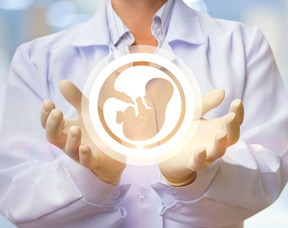A diagnosis of male infertility can be one of the hardest challenges a man can face. Male infertility factors contribute to approximately 30% of all infertility cases, and male infertility alone accounts for approximately one-fifth of all infertility cases. A man’s fertility generally relies on the quantity and quality of his sperm. If the number of sperm a man ejaculates is low or if the sperm are of a poor quality, it will be difficult, and sometimes impossible, for him to cause a pregnancy. Male infertility is diagnosed when, after testing both partners, reproductive problems have been found in the male.
Not being able to conceive a child can be stressful and frustrating, but a number of male infertility treatments are available. In choosing a treatment plan, consideration should be given to each couple’s long-term goals, financial constraints, and the results of the female partner’s evaluation in addition to male factor findings.
Treatment For Male Infertility
The treatment of male infertility depends upon the underlying cause. Several months to years of treatment are usually necessary in order to achieve fertility. The treatment often involves both male and female partners. Some treatments for male infertility can include:
Surgery
Surgical treatment options include varicocele repair, ejaculatory duct resection and vasectomy reversal. What is unique about surgical treatments for male infertility is that they can “cure” the problem and allow for conception at home and not in the laboratory.
Treating Infections
Antibiotic treatment might cure an infection of the reproductive tract, but doesn’t always restore fertility.
Treatments For Sexual Intercourse Problems
Medication or counseling can help improve fertility in conditions such as erectile dysfunction or premature ejaculation.
Hormone Treatments And Medications
Your doctor may recommend hormone replacement or medications in cases where infertility is caused by high or low levels of certain hormones or problems with the way the body uses hormones.
Intrauterine Insemination (IUI)
Semen is collected from a man. A procedure called “sperm washing” is done to separate the healthy sperm from the rest of the semen. A health care provider then puts the sperm directly into the woman’s uterus. IUI is often referred to as donor insemination, alternative insemination, or artificial insemination.
Trying to conceive a child can be a stressful and confusing time, especially if you and your partner are faced with infertility. However with the number of improvements made in technology, the prognosis for infertile couples has changed from being discouraging to being quite promising. Your healthcare provider can help you to figure out which treatments may work best for you and your partner and begin your road to conception.


